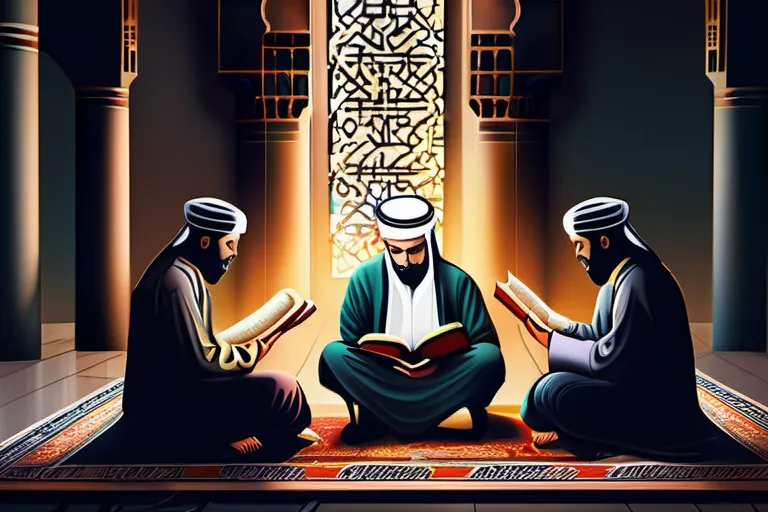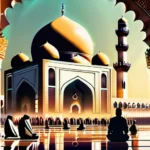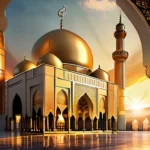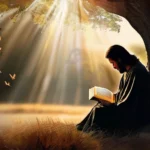Exploring the Importance, Functions, and Influence of Islamic Scholars
Delve into the world of Islamic scholarship as we explore the role of the Ulema – the learned men of Islam. From their historical significance to their contemporary functions, this article offers a comprehensive guide.
The Historical Significance of the Ulema
The Ulema, often seen as the guardians of Islamic knowledge and tradition, have played a pivotal role in shaping the course of Islamic history. Who were these revered scholars in the first place?
The term ‘Ulema’ refers to learned Muslim religious scholars who specialize in Islamic studies such as law, theology, and philosophy. From their origins during the time of the Prophet Muhammad, they have evolved into a significant institution within Islamic society.
Imagine a garden where watering canals channel knowledge from the Quran and Hadith to the hearts of Muslims worldwide. These learned scholars act as the caretakers, ensuring that this knowledge flows freely through generations. From the early days when the Prophet’s companions laid down the foundational principles, the role of Ulema has been central in preserving and interpreting Islamic teachings.
During the Umayyad and Abbasid periods, the Ulema began to formalize their roles as jurists, theologians, and philosophers. They acted as the voice of reason during times of conflict, offering guidance based on the principles enshrined in Islamic texts. The Ummayad Caliphate saw the establishment of madrasas, or religious schools, where the next generation of scholars would be trained.
Fast forward to more recent centuries, and we see a diverse array of roles for Ulema. In modern times, they serve as legal authorities, providing fatwas (legal opinions) on contemporary issues that have arisen in an ever-changing world. They also act as educators and moral guides, shaping the spiritual landscape of communities across the globe.
The journey of the Ulema has been one of constant adaptation and evolution, much like a river carving its path through diverse terrains. As Islam spread from Arabia to distant lands, so did the influence of these scholars, adapting their teachings to local contexts while maintaining core principles.
The Functions of the Ulema in Islamic Society
The functions of the Ulema within Islamic society are as diverse and intricate as the threads that weave together the fabric of Muslim communities. They are like navigators on a vast sea, guiding believers through the complexities of religious law and moral guidance. One of their primary roles is interpreting sharia, or Islamic law. This involves delving into ancient texts and contemporary issues to provide clear directives for Muslims. How do we reconcile the modern world with our traditional values? The Ulema are essential in navigating this balance, offering rulings that bridge the gap between historical teachings and current realities.
Teaching is another crucial function of the Ulema. They often serve as educators, imparting knowledge to future generations. These scholars are like lighthouses in a darkened world, illuminating the path of understanding for young minds. In many Muslim communities, they teach in madrasas (Islamic schools), where students learn about the Quran, Hadiths, and Islamic jurisprudence. But their influence extends beyond these walls; they are often invited to deliver lectures at universities and mosques, sharing their wisdom with a broader audience.
Providing spiritual guidance is perhaps one of the most profound roles of the Ulema. They act as counselors, offering advice on personal and communal issues that arise from daily life. In times of crisis or doubt, Muslims often seek out these scholars for solace and direction. Their counsel can range from counseling couples through difficult marriages to advising entire communities on social and political matters. This role is akin to being a trusted friend who offers both comfort and wisdom during trying times.
The Ulema play a pivotal role in shaping the spiritual, legal, and moral landscape of Islamic society. Through their interpretations, teachings, and guidance, they ensure that the principles of Islam remain relevant and applicable across generations. As we move forward, it is crucial to recognize and support these scholars who continue to guide us through the ever-evolving world.
The Sources of Islamic Law: The Four Schools of Thought
The sources of Islamic law are like a vast ocean, with each wave representing one of the four major schools of thought: Hanafi, Maliki, Shafii, and Hanbali. These schools act as lighthouses guiding Muslims in their daily lives, each offering unique navigational tools to interpret Islamic law.
The Hanafi school is akin to a navigator who charts new waters with flexibility and adaptability. Founded by Imam Abu Hanifa, this approach allows for personal reasoning (ijtihad) when traditional sources are silent or ambiguous. It’s like having a map that can be adjusted based on the terrain.
Contrastingly, the Maliki school resembles a seasoned sailor who adheres to established routes and traditions. Established by Imam Malik ibn Anas, this approach emphasizes the application of local Hadiths (sayings and actions of Prophet Muhammad) and Qiyas (analogy based on Quranic principles). It’s as if you’re following a well-trodden path, ensuring stability and consistency.
The Shafii school can be likened to a cartographer who meticulously studies the landscape before mapping it. This approach involves a thorough review of legal sources, including Hadiths, Quran, ijma (consensus), and Qiyas. Imam Muhammad al-Shafii’s method is detailed and comprehensive, ensuring that every aspect of Islamic law is well-documented.
Lastly, the Hanbali school is like a ship captain who insists on adhering strictly to rules, with less room for deviation. Founded by Imam Ahmad ibn Hanbal, this approach emphasizes strict adherence to Quranic verses and Hadiths without much flexibility in interpretation. It’s akin to following precise navigation instructions to ensure safety and accuracy.
Each of these schools offers a unique perspective on interpreting Islamic law, contributing to the rich tapestry of Islamic scholarship. Understanding their approaches helps us appreciate the diversity within Islamic jurisprudence, ensuring that Muslims can navigate their religious obligations with wisdom and depth.
The Ulema and Contemporary Issues
The Ulema, those esteemed Islamic scholars who have dedicated their lives to understanding and interpreting the Quran and Sunnah, play a pivotal role in addressing contemporary issues within Islam. How do they navigate the complexities of modern society while staying true to traditional teachings? When it comes to matters like women’s rights, the interpretation of jihad, and the tension between religion and secularism, the Ulema must act as both guides and interpreters.
Women’s rights have been a contentious issue in many Muslim-majority countries. How do the Ulema balance the hadiths that some interpret as limiting women’s roles with the modern understanding of equality? Some scholars argue for a reinterpretation of these texts, emphasizing their contextual nature and the importance of progress. Others maintain traditional views, asserting that certain verses in the Quran support patriarchal norms. This debate is not just academic; it affects the daily lives of millions of women worldwide.
The concept of jihad has been hotly debated, particularly with the rise of extremist groups claiming to use religious rhetoric for violent ends. How do the Ulema define and interpret jihad in a way that discourages violence and promotes peace? Is it a struggle against personal vices or an armed conflict? The Ulema must guide their communities towards a more holistic understanding, one that aligns with the broader principles of al-wilaya (protection) and al-hifz (preservation).
The tension between religion and secularism is another significant challenge. How do the Ulema ensure that their teachings remain relevant while not becoming too intertwined with state affairs? Do they support a secular approach where religious laws are separate from civil law, or should religion be more integrated into governance? The Ulema must walk this fine line, advocating for a system that respects both individual freedoms and communal values.
The role of the Ulema in these contemporary issues is crucial. They serve as torchbearers, guiding their communities through a complex and rapidly changing world. By engaging with modern challenges, they ensure that Islam remains a living, evolving tradition rather than one confined to the past. The future of Islam depends on how well the Ulema navigate these critical issues.
The Influence of the Ulema on Islamic Art and Culture
The Influence of the Ulema on Islamic Art and Culture: Explore how the teachings and interpretations of the Ulema have shaped Islamic art, architecture, literature, and music throughout history.
Imagine a grand canvas, upon which the brushstrokes of Islamic art were delicately painted. Who guided these artists? The Ulema, with their profound understanding of Islamic principles, played an instrumental role in shaping this artistic landscape. Through their teachings and interpretations, they provided a framework within which artists could explore the beauty of the divine.
Architecture too was not spared from the influence of the Ulema. From the majestic domes of mosques to intricate geometric patterns adorning palaces, these scholars ensured that every design element carried symbolic meaning aligned with Islamic values. The sacred geometry seen in Islamic art is a testament to how deeply the teachings of the Ulema permeated cultural expressions.
Literature also saw its transformation through the guidance of the Ulema. They encouraged the writing of works that not only entertained but also educated and inspired moral reflection. Think about it: without their input, would we have had such rich literary treasures as Al-Majalis al-Tadiliyah, a collection of wise sayings that continue to influence Islamic thought today?
The Ulema’s role extended even into the realm of music. They not only set moral standards for what was permissible but also contributed through their own poetry and compositions. This blend of scholarly insight with creative expression created an environment where art flourished, yet remained true to Islamic values.
Reflect on how these artistic forms have evolved over time, adapting to new contexts while retaining core principles. The Ulema’s wisdom continues to guide us in understanding the profound connection between religion and culture within Islam.
The Future of the Ulema: Challenges and Opportunities
The future of the Ulema in Islam is both challenging and promising, much like navigating a ship through turbulent waters while charting towards uncharted territories. As the world becomes more interconnected due to globalization, how will the Ulema adapt? Are they ready for the winds of change blowing from secularism, or will they find themselves sailing against an unfamiliar current?
Globalization has brought about a wave of diversity and cultural exchange, but it has also introduced new challenges. The Ulema must navigate this diverse landscape while preserving the core values of Islam. How can they maintain their traditional teachings without alienating modern societies? Are there ways to bridge the gap between tradition and innovation, or will they find themselves at odds with those seeking a more liberal interpretation of Islamic practices?
The rise of secularism presents another significant hurdle. In many parts of the world, government and religion are increasingly separated, leading some to question the role of the Ulema in public life. Can the Ulema still influence society without holding official positions or political power? How can they continue to guide their communities when the traditional structures of authority are changing?
Additionally, the proliferation of new religious movements has created a complex environment for the Ulema. There is an overwhelming variety of beliefs and practices that challenge long-held traditions. How should the Ulema respond? Should they engage with these movements to provide guidance or maintain strict boundaries to preserve their teachings?
Yet, amidst these challenges lie opportunities for growth and renewal. The digital age offers new platforms for reaching out to people from different backgrounds and cultures. Through social media and online forums, the Ulema can share their wisdom on a global scale. Are they utilizing these tools effectively? How can they use technology to connect with younger generations who are increasingly influenced by the internet?
Moreover, the Ulema have a chance to redefine their role in society. They can become more involved in community service and social justice initiatives, addressing issues like poverty, education, and human rights. By becoming more proactive in these areas, they may find greater support from the public and political leaders.
The future of the Ulema is not predetermined; it depends on their willingness to adapt and innovate. Will they embrace change or resist it? The answer lies in how well they can balance tradition with modernity, ensuring that the teachings of Islam continue to be relevant and meaningful in an ever-changing world.
Conclusion
 By understanding the role of the Ulema in Islam, one gains insight into the rich tradition of Islamic learning and its continued relevance today.
By understanding the role of the Ulema in Islam, one gains insight into the rich tradition of Islamic learning and its continued relevance today.











